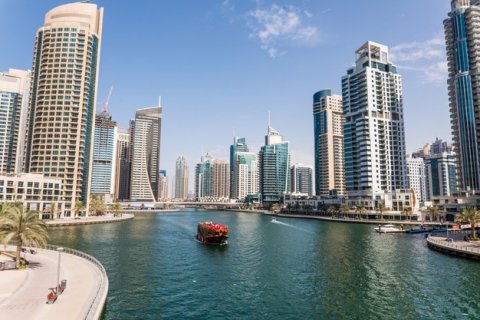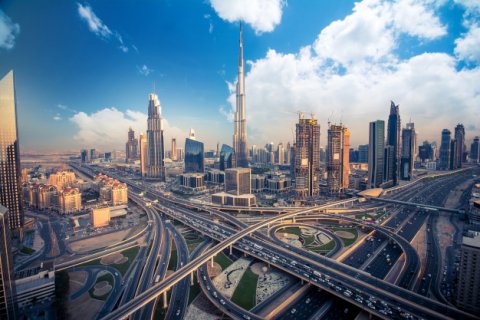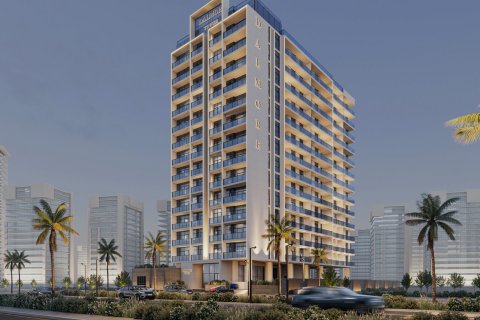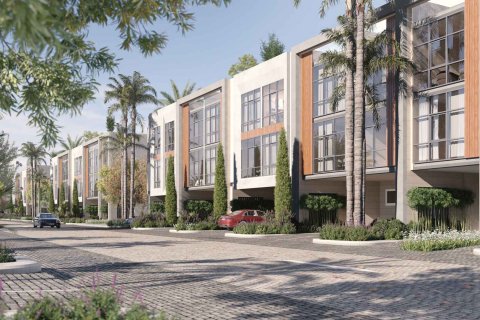_580x320.jpg)
Is it worth purchasing real estate in the United Arab Emirates on a mortgage? What kind of housing in the UAE can be bought on a mortgage? Are there any restrictions on applying for a home loan for non-residents in the UAE? If so, which ones? Are there any features of applying for a mortgage for foreign residents in the UAE? What are they?
In what cases can an expat get a home loan at a bank in the UAE? When can banks in the United Arab Emirates refuse to issue a mortgage?
What documents does a foreigner need to apply for a mortgage in the UAE? What is the procedure for buying a home in the United Arab Emirates on a mortgage?
What mortgage programs do banks in the United Arab Emirates offer? Which banks operating in the UAE are better to get a mortgage?
You can find the answers to all these questions on this page.
Table of contents:
- Mortgage in the UAE: is it worth it or not?
- What kind of housing in the UAE can a foreigner buy on a mortgage?
- Restrictions on applying for mortgage loans for non-residents in the UAE
- Features of applying for a mortgage for foreign residents in the UAE
- What documents does a foreigner need to apply for a mortgage in the UAE?
- The procedure for buying a home in the UAE on a mortgage
- Mortgage programs in the UAE and their features
- What mortgage programs do banks in the United Arab Emirates offer?
- We will help you become an apartment owner in the United Arab Emirates!
Mortgage in the UAE: is it worth it or not?
The United Arab Emirates is home to many expats from other countries. It is little wonder that every week, hundreds of property transactions are concluded in the UAE. This is because not only are locals offered various mortgage programs but UAE banks also offer many home loan options to foreigners.
It is more profitable to buy housing on a mortgage in the UAE than renting a house or apartment as the cost of renting a home is approximately 6-10% of the property cost.
In addition, the advantage of owning an apartment in the United Arab Emirates is that if you do not have enough money to pay off your mortgage loan, you can always rent your apartment out and receive the rental income to repay the loan.
Another important point to consider is that real estate prices in the UAE are constantly growing. So buying an apartment or villa in this country is not just a good way to save money but also an excellent opportunity to make a profit and increase your own income. That is because if you rent an apartment out, the tenant fees can be much higher than your monthly mortgage repayments.
.jpg)
What kind of housing in the UAE can a foreigner buy on a mortgage?
You can choose any type of property in the United Arab Emirates to buy on a mortgage when it comes to residential properties. Here you can buy studio apartments with an area of 30 square meters as well as luxury villas and apartments in the suburbs or prestigious neighborhoods. The most popular among foreign property buyers and expat neighborhoods in Dubai include Dubai Marina, Palma Jumeirah, and Downtown Dubai.
Real estate prices depend on how developed the neighborhood where your property is located, its distance from the beach, the view from the windows, how large the property is, and several other factors.
The average cost of housing in Dubai is $2,500-3,000 per square meter. Additionally, when it comes to commercial properties, the price rates reach $2,800-3,500.
Restrictions on applying for mortgage loans for non-residents in the UAE
There are plenty of banks in the United Arab Emirates that offer foreigner’s mortgages. However, there are some restrictions for foreign applicants:
- Some banks may refuse to issue a mortgage if you do not have a UAE residence permit. Nationals of the GCC countries as well as India and the UK can apply for a mortgage with Mashreq Banks and some others.
- According to the current law, foreigners can acquire housing in the UAE only in specially designed zones called "freehold zones". Each bank in the UAE has lists of properties from which you can choose to apply for a mortgage (each bank has its own).
- Foreigners are also not allowed to buy apartments in off-plan projects in the United Arab Emirates.
Features of applying for a mortgage for foreign residents in the UAE
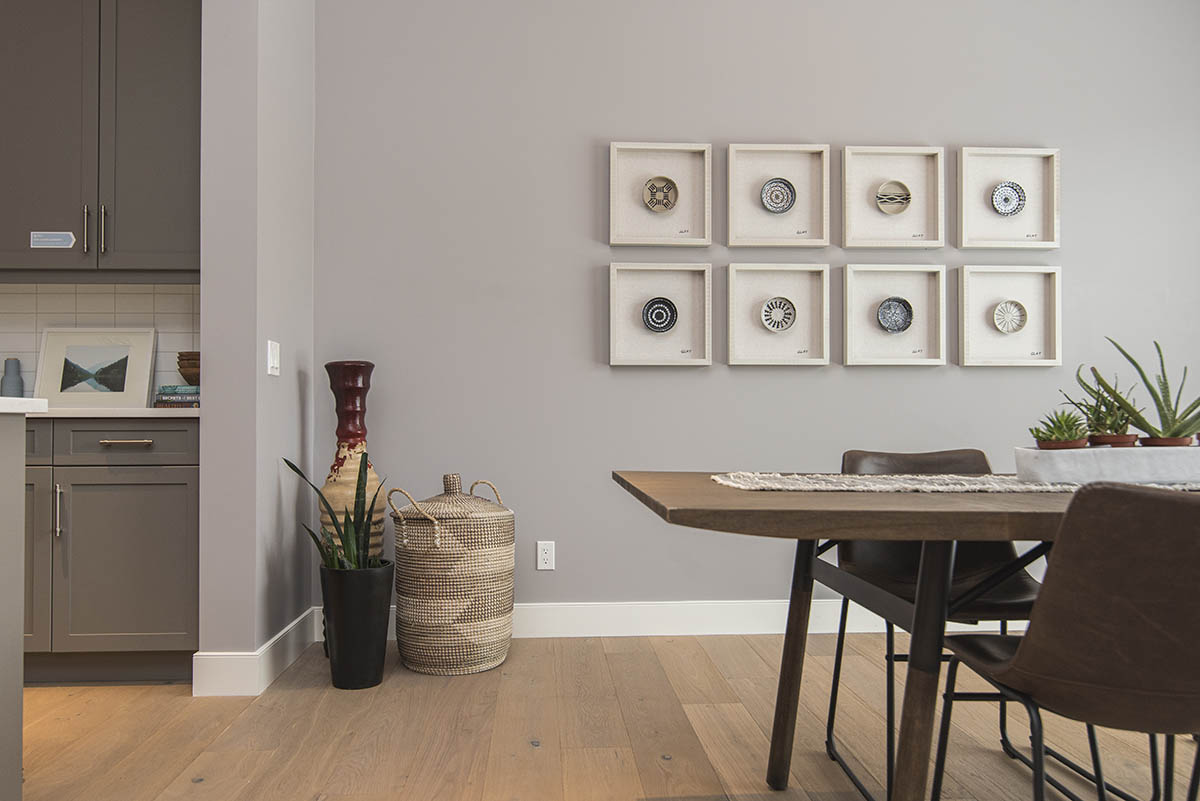
In what cases can an expat get a mortgage with a bank in the UAE? A foreigner can apply for a mortgage loan in the following cases:
- If they have a residence permit.
- If an applicant is financially reliable.
-
If an applicant provides a certificate of their income (employees need to submit a salary certificate, and business owners need to submit a financial audit of the business for the previous 2 years), as well as a bank statement for the last 6 months.
If you have an additional income (for example, from renting out a property), then these income certificates can also be submitted to the bank.
- If you have at least 3,500 AED per month for each member of your family after you pay monthly repayments on all loans you have and if all your monthly repayments do not exceed 50% of your total monthly income.
In what cases can banks in the United Arab Emirates refuse to issue a mortgage loan?
- Most banks will likely refuse to draw up a mortgage agreement if an applicant is over 50 years old.
- In addition, there is a lower age limit in this case. One of the banks' requirements is that at the time of signing the mortgage agreement the borrower is 21 years old, and at the time of full repayment of the loan they are no more than 70 years old (in some banks it is no more than 65 years old).
- UAE residents who originally come from other countries can apply for a mortgage loan up to 90% of the property cost. Applicants who do not have the status of a UAE resident can apply for a loan up to 70% of the cost of an apartment or villa.
The interest rates of mortgage loans in the UAE vary from 4% to 7% depending on the bank and if a property for sale is newly built or second-hand.
What documents does a foreigner need to apply for a mortgage in the UAE?
To apply for a home loan, you must provide a bank with the following documents:
- An application form.
- A copy of your passport.
- A copy of a residence permit in the United Arab Emirates.
- A bank statement for the last 6 months.
- A copy of original documentation confirming your current residential address (tenancy agreement, utility bills, etc.).
- A salary certificate.
- 2 years audited financial accounts or 2 years of the most recent tax assessments if not audited, a copy of Trade License, a copy of Memorandum and Articles of Association (first Memorandum and all amendments made to date) if you are self-employed or a company owner.
In addition to the standard list of documents, each bank may require other papers to be provided.
It takes about 5 days for a bank to process an application and verify all the documents. If a bank approves the application, the buyer is given 2 months to find a property.
The procedure for buying a home in the UAE with a mortgage
After an applicant chooses a property to buy, they sign a Memorandum of Understanding or MOU. The seller also signs an MOU. Thereafter, the buyer pays their deposit to confirm the purchase. All papers are submitted to the bank and the lender carries out an independent property evaluation.
After this evaluation, the bank gives the client a final answer regarding whether they will issue a mortgage or not.
Thereafter, the buyer deposits to the bank that is often equal to repayments for 6 months.
-
The lender charges 1% of the property price for processing the application. However, if the bank's decision is negative, the charge will be refunded to the applicant.
Information of all property transactions in the United Arab Emirates goes to the Land Department and is registered in their system. After registration, the buyer receives a certified copy of the document confirming the ownership of the property while the original is kept in the bank.
- The buyer must also pay insurance for the purchased home which is equal to 0.5% of the total value of the property.
Mortgage programs in the UAE
Home loan programs in the UAE can vary from programs in your country. One of these differences is that you have to pay a fine for the early repayment of a mortgage loan. This rule does not apply to all banks though. The size of the fee is calculated based on the size of the loan, how much time has passed since the signing of the contract with the bank, as well as the type of loan.
What mortgage programs do banks in the United Arab Emirates offer?
A mortgage loan in the UAE can have:
- A variable rate.
- A fixed-rate.
- Some banks offer mortgages with both fixed and variable rates (a combined option).
A mortgage with a fixed rate is issued for 1, 2, 3 or 5 years. However, some banks issue a loan with a fixed rate for the entire term of the agreement. This type of home loan is an option for those who want to know in advance before signing a contract with a bank how much they will have to pay every month until the last payment. It allows the buyer to plan their costs.
A loan with fixed monthly payments is more profitable than a loan with variable interest rates as banks can raise interest rates.
Experts advise that you research the mortgage offers from different banks carefully. This will allow you to choose the best offer for your circumstances. You can also contact mortgage brokers who will help you find a suitable mortgage.
.jpg)
10 banks in the UAE that offer mortgages to foreigners
Here is the list of banks in the United Arab Emirates that work with foreign customers:
-
Аbu Dhabi Commercial Bank.
Located in Abu Dhabi, this bank is one of the largest in the UAE. Abu Dhabi Commercial Bank was launched in 1985. 65% of the shares belong to UAE authorities and the rest belongs to individuals.
It has 50 branches in the United Arab Emirates and there are 3 branches overseas (2 of them are in India and 1 is located in the UK).
- Аbu Dhabi Commercial Bank offers commercial, brokerage, investment and lending services.
-
Amlak.
The bank was launched in 2000. Amlak offers expats the friendliest terms for home loans.
-
Barclays.
Barclays Plc operates not only in the UAE but also in the USA and throughout Asia and Europe.
-
Dubai Islamic Bank.
The bank is located in Dubai and was founded in 1975. The bank is based on the financial laws of Islam. At the end of 2014, the assets of Dubai Islamic Bank amounted to 123,900,000 AED which was 32% more than the previous year (at the end of 2013).
It has more than 50 branches throughout the United Arab Emirates. In addition, it has branches outside the country. For example, its subsidiary DIB Pakistan which includes 35 branches, operates in Pakistan.
-
Emirates NBD.
Emirates NBD was launched from a merger between the National Bank of Dubai and the Bank of the Emirates. It operates in Saudi Arabia, Iran, Singapore, India and the UK. Emirates NBD is one of the leading banks in the Middle East.
-
Emirates Islamic Bank.
Emirates Islamic Bank was founded in 2004 and belongs to Emirates NBD (a group of companies). The bank works with small, medium and large businesses.
Emirates Islamic Bank operates according to the principles of Islam, therefore the terms of lease contracts and various trade agreements concluded between the bank and its clients are as transparent as possible.
-
HSBC (HSBC Bank Middle East).
It has been operating since 1946. In 1999, it was renamed HSBC Bank Middle East. Here you can open savings accounts and take loans (including mortgages) both as an individual and a legal entity.
-
Mashreq Bank.
Mashreq Bank is one of the oldest banks in the United Arab Emirates (established in 1967) and is headquartered in Dubai. When it was launched, the name of the bank was Bank of Oman Limited.
Its considerable assets (85,000,000,000 AED) make it one of the key banks in the country.
In the United Arab Emirates, there are more than 3,000 Mashreq Bank ATMs and 50 branches. In addition, there are branches in Qatar, Bahrain, Kuwait, Egypt, Pakistan, Bangladesh, India, Nepal, the United States of America and Hong Kong.
-
Noor Islamic Bank.
It has been operating since 2007, 24 hours a day, 7 days a week. The head office is located in Dubai with branches throughout the country (branches are located in Abu Dhabi, Sharjah, Al Ain and in other major cities of the UAE). Noor Islamic Bank operates following the financial laws of Islam.
- Rakbank (National Bank of Ras Al-Khaimah PSC) has been operating in Ras al-Khaimah since 1976. Its total assets reach 6,000,000,000 dollars. The Cooperation Council for the Arab States of the Gulf, which includes Kuwait, Bahrain, Saudi Arabia, Oman and Qatar, recognized Rakbank (National Bank of Ras Al-Khaimah PSC) as the best bank in terms of various indicators.
We will help you become an apartment owner in the United Arab Emirates!
Are you looking for a property to buy in the United Arab Emirates on a mortgage loan? Then check out the best deals on Emirates.Estate. On our property platform, you will find the very latest offers including apartments for sale in new projects, villas, commercial properties and land plots.




































